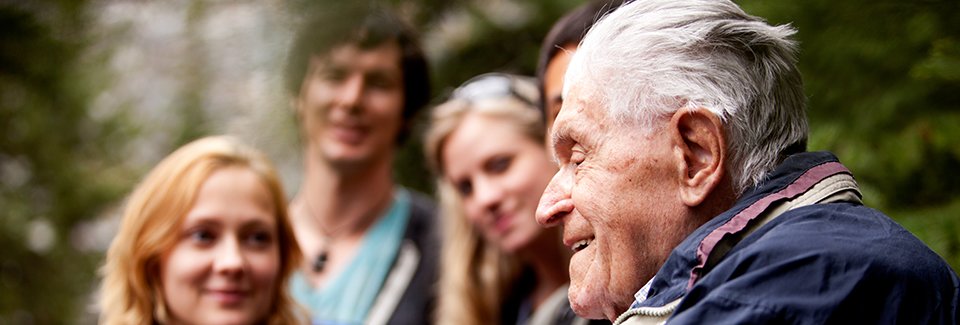(585) 352-1500

Dealing with Grief & Sharing of Stories
It is within the first year following the death of a loved one (sometimes longer) that we are often stuck on the last images of them. Whether it be the vision as they passed on or at the funeral services, these last images can haunt, and add to the grief.
Many wonder why we relive our loved one’s last moments. It could be that our minds are trying to accept the reality of what we have witnessed. Seeing a loved one as they are reaching the end of their life or at the moment of passing can be traumatic. Other reasons may be dependent on the circumstance of death and/or the relationship prior to their passing. The last conversation with a loved one may not have been positive, maybe an argument occurred, or the relationship dynamic was tumultuous, complicated or strained. Either way, it often results in feelings of guilt and anger. This can make us feel stuck in a place where we cannot heal. Guilt can lead us down a dark path if we are not aware of it. Self-criticism can run rampant and cause us to beat ourselves up and blame ourselves for all those things we felt went wrong. Once we engage in self-criticism, it can easily snowball to extremes and anger can emerge and take control.
Guilt unfortunately can play a big part in re-playing the death of your loved one as well as things that happened before death. Our mind subconsciously uses guilt to punish. This is an important concept to recognize, though it is not surprising we naturally bask in the throes of guilt after we lose a loved one. Our internal balance is off and alters our thinking. Once we understand what is happening inside of us, it can lead to empowerment, the ability give yourself compassion and the green light to take action for change.
To begin this process it is important to bring back the positive memories of your loved one. Before starting, try to surround yourself with people who will not only embrace your stories, but will also encourage your sharing. Be selective! The next step is opening up about your feelings of guilt and more importantly discovering the details that led up it. Sharing this is critical, and can be extremely cathartic. In return you will get essential feedback from those who support you. Sometimes guilt warps the true realities of the situation. The benefit of a peer’s perspective is that it may help clarify your confusion. Maybe you had no control over your circumstances, or the extreme emotional pain modified your ability to react appropriately or maintain a perfect disposition within a very complicated and difficult time. Sometimes help is needed in deciphering the truth because when we are grieving we simply can’t rely on a distraught mindset. Once we feel heard and validated, it allows us the capacity to start seeing reality separate from emotions, bringing clarity. At this point, self-forgiveness is possible. In the end, guilt does not do anything positive for healing, it keeps us stuck, and spinning on a hamster wheel. Once it is believed that guilt has no other purpose than holding yourself hostage to punishment, healing can begin. Here’s the challenge - Would our loved one punish us for being imperfect in the midst of what may be our most painful life experience? At the very least, feeling guilt or remorse means that you are a caring individual with a conscience. These are virtues of the heart, and with this perspective it can truly be considered a beautiful thing.
Once there is a better understanding of why we relive the death of a loved one and we find the right people and places that support our grieving, we begin the sharing of stories. It is best to start with favorite memories, fun times and happy occasions. Sharing “who” your loved one was in life, is meaningful and leads back to them as a person. You are likely to know the most about your loved one and are the most qualified one to talk about their legacy, their personality, your relationship with them and others. In the beginning, these stories will most likely provoke tears and feelings of missing them deeply. Some people intentionally avoid discussing their loved one for this reason, however it is vital for healing to allow ourselves to feel and express our emotions. You may find that when other people embrace your grief and can relate to you, your guard begins to erode and it becomes easier to accept empathy. This will ultimately strengthen you and continue the process of building a foundation of healing- bringing comfort, hope, courage and inspiration. Warm receptions of the stories you share will enable you to tell more. And, more importantly sharing your loved one’s memory will keep their spirit and legacy alive. In time, talking about them will begin to feel good and it will help you feel close to them. It is the physical proximity which presents the biggest struggle; not being able to hug them, hear their voice and engage in activities we used to do with them. Truly believing that their soul is still present with us becomes a healing factor and it re-defines our relationship with them. It is healing to believe that our relationship with them will not end, but is transformed. Though it may feel foreign, it is important to allow yourself to learn a new spiritual way of interaction and engagement with your loved one.
The following metaphor by Stephen Hayes relates well to substance of grief:
Quicksand
“When we’re stuck in quicksand, the immediate impulse is to struggle and fight to get out. But that’s exactly what you mustn’t do in quicksand – because as you put weight down on one part of your body (your foot), it goes deeper. So the more you struggle, the deeper you sink – and the more you struggle. With quicksand, there’s only one option for survival. Spread the weight of your body over a large surface area – lay down. It goes against all our instincts to lay down and really be with the quicksand, but that’s exactly what we have to do. So it is with distress & grief. We never considered just being with the distressing thoughts and feelings, but if we did, we’d find that we would get through it and survive – more effectively than if we’d fought and struggled.”
Related article
Guilt and Grief: coping with the shoulda, woulda, couldas



Comments